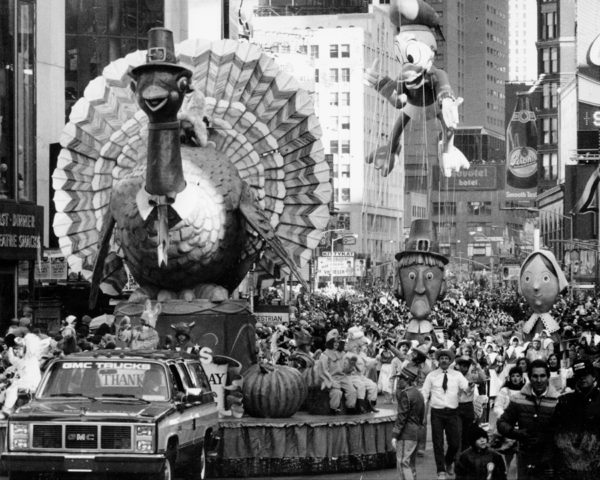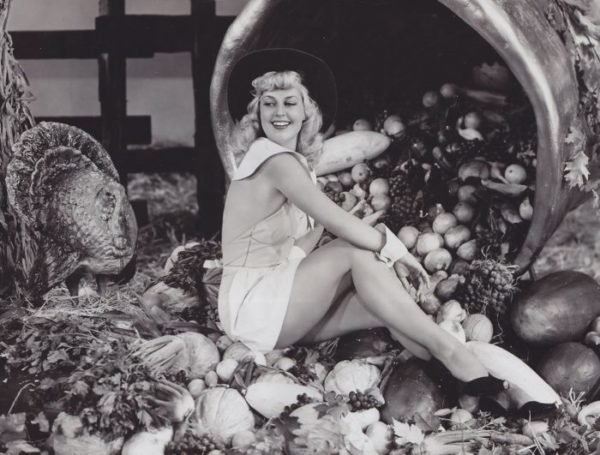One of the worst nights of my career in hospitality—possibly one of the worst nights of my life—was spent working in a restaurant on Thanksgiving. All restaurant workers have had nights like this. They haunt our dreams. They seep into the deepest crevices of our subconscious loathing for the service industry.
That night, I was waiting tables in a fine dining restaurant offering a luxurious tiered menu. We were recklessly overbooked. It’s not unusual for restaurants to feel pressure to squeeze every drop of revenue out of the holiday season. Staff perform under enormous duress, faced with the insurmountable task of meeting both the guest’s and the owner’s expectations.
If you’ve never worked in a restaurant before, it’s difficult to understand the unique challenges you face trying to make guests happy over the holidays. Restaurants become theaters for epic family drama, tragedies of Shakespearean proportions that bubble over the surface.
In order to keep flare-ups from becoming dumpster fires, restaurants must execute seamlessly. Protracted waits for food become existential crises. Toddlers harnessed in height chairs populate the dining room like land mines waiting to explode. Everyone has a gluten allergy, a dairy intolerance or a sensitivity to garlic.
Chefs carefully streamline their Thanksgiving menus to minimize potential snafus. The obligatory pumpkin soup doesn’t only appear on every Thanksgiving prix fixe to keep food costs low, but also because it’s scalable for rapid service. It’s the one day of the year when most chefs will forgive themselves for putting out food that compromises their standards. They know it’s a battle of attrition, and pride is an impediment to shorter fire times.

Thanksgiving as a legitimate cause for celebration in the United States is already fraught. Its inherent contradictions have come into much sharper focus this year than in years past. If 2020 has taught us anything, it’s how far we are as a nation from coming to terms with the disenfranchisement and decay within communities of color wrought by the legacy of white imperialism and colonization.
America’s feudal system has resulted in a disproportionate number of Black and Brown people working low-income jobs in the service industry. Glutinous rich people treating themselves to abundant meals prepared by immigrants and people of color is shamefully, yet unsurprisingly, consistent with the holiday’s racist underpinnings.
Optics aside, having a Thanksgiving meal in a restaurant has always seemed antithetical to the patriotic mythology of hearth and home that the holiday conjures in the American imagination. In reality, people who dine out on Thanksgiving either don’t feel like cooking or can’t be bothered with the logistics of hosting a gathering in their own homes. Paying a premium for a restaurant meal brings a sense of entitlement. Holiday guests rarely acknowledge the sacrifices restaurant workers make to manufacture cheerful experiences while missing out on their own family gatherings.
Working in a restaurant on Thanksgiving is rarely by choice. At best, staff members may be offered to pick their poison among various holiday shifts. If you want Christmas Eve off, then you have to work on Thanksgiving. If you want to party on New Year’s Eve, then you have to work New Year’s Day… brunch. This year, the choice whether or not to work during the holidays will be dictated by a pandemic that has displaced thousands of restaurant workers.
I can’t remember the last time I didn’t have to work on Thanksgiving. The hospitality professional part of me feels uneasy about having a holiday unencumbered by work. The sane part of me is downright giddy. Don’t get me wrong, being unemployed over the holidays is no slice of sweet potato pie. In fact, it’s quite stressful. I spend days dividing my bank balance by my monthly rent payment to determine how many months I have left before becoming insolvent. I’m hardly alone in making this painful calculation. Many of my colleagues who’ve been laid off this year have already slipped below the threshold of financial viability.
The restaurant industry is facing a long, arduous winter—rationing the little resources we have, clinging to what’s left of our dignity, and praying for a swift economic recovery. Most of us have no idea if we’ll be rekindled with our old jobs, and there’s growing uncertainty about whether the post-pandemic economy will be healthy enough to foster a strong revival in the service sector.
When it finally ends, 2020 will take its place in the pantheon of dreadful years throughout human history. Yet amid all the economic, political, and social tumult in the world right now, I must pause a moment, for my own sanity, to give thanks for the fact that I won’t be serving any turkey or any trimmings to any strangers on Thanksgiving this year.


I think this blog post is 100 percent applicable to me because I would dread to have to work on a Holiday. I also agree how people who go out to eat on Thanksgiving think they have a sense of entitlement because they are too good to have people over to their house or too lazy to cook, meanwhile there are restaurant workers who have to be there working on a holiday, trying to satisfy and serve others. Seems a little unfair if you ask me.
[…] Adam Reiner | Dec 7, 2020 | News | 0 […]